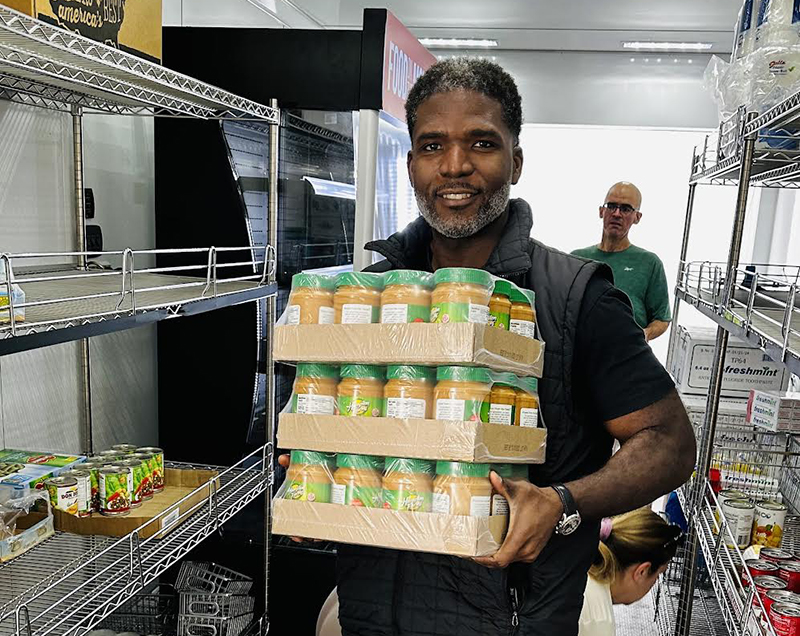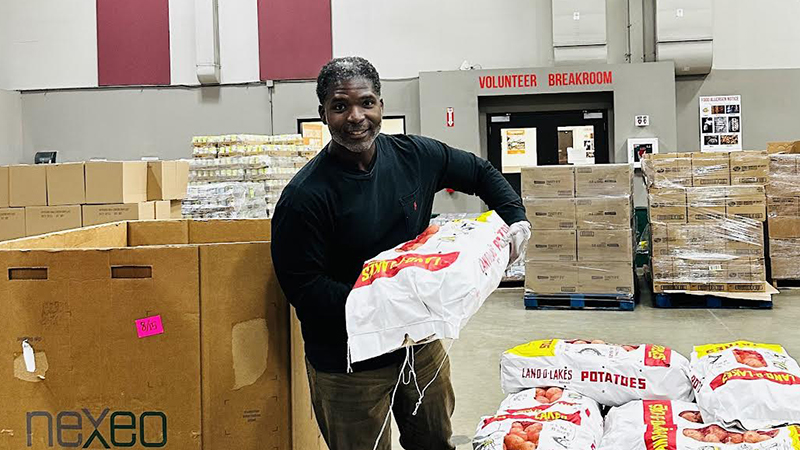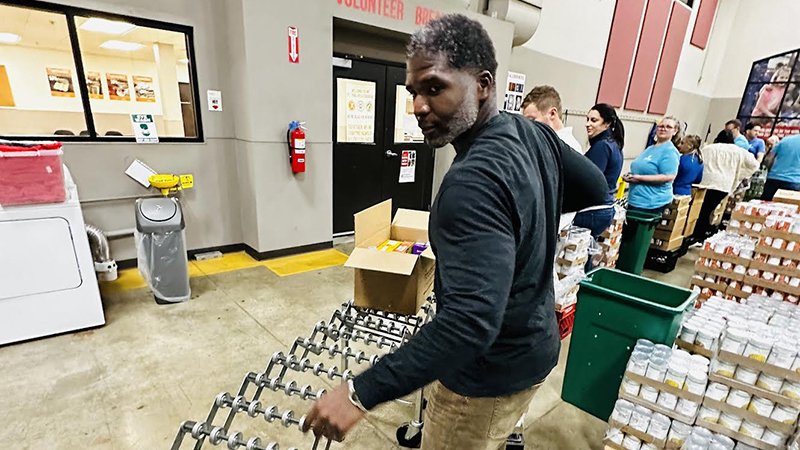
Articulated Insight – “News, Race and Culture in the Information Age”






On November 1, 2025, if Congress fails to act, the Supplemental Nutrition Assistance Program (better known as SNAP) will stop distributing benefits to more than 40 million Americans. This is evidence that when the federal government shuts down, the damage does not stop in Washington. It echoes through America’s kitchens, grocery aisles, and classrooms.
For policymakers, it’s another fiscal standoff. For families, it’s the difference between a stocked pantry and an empty plate.
SNAP has long been the nation’s most effective defense against hunger. Each month, it feeds children before school, sustains older adults living on fixed incomes, and helps working families stretch paychecks that never seem to go far enough. But when federal funding dries up, there’s no safety net beneath the safety net.
According to the U.S. Department of Agriculture, more than 12 percent of American households experienced food insecurity in 2023 (USDA, 2024). That number, already troubling, is expected to spike sharply if benefits halt. The Center on Budget and Policy Priorities estimates that every $1 in SNAP benefits generates up to $1.80 in economic activity (CBPP, 2024). The loss of these dollars will hit local economies hard, particularly in small towns and low-income neighborhoods where grocery stores depend on SNAP purchases to survive.
In Missouri alone, nearly 700,000 residents rely on SNAP to meet basic nutritional needs. A single missed payment could leave families rationing food within days. As one Georgia mother told a local reporter recently, “It’s not politics to us, it’s whether my kids eat.”
The link between nutrition and health is undeniable. Food insecurity increases the risk of chronic diseases like hypertension, diabetes, and heart disease. It drives up health-care costs, burdens hospitals, and erodes community well-being. The American Public Health Association has repeatedly found that hunger is not simply a symptom of poverty, it is a driver of poor health outcomes.
The pain of a halted program will not be shared equally. Communities of color, older adults, people with disabilities, and rural households are overrepresented among SNAP recipients. For Black and Latino families, who already experience higher rates of food insecurity, this shutdown will deepen inequities that have persisted for generations.
Across the country, states are warning residents that they cannot fill the gap. Some governors have already announced that their budgets do not allow for replacement benefits. Food banks and community pantries are preparing for an unprecedented surge in need.
But even at full capacity, food banks cannot replicate the reach of SNAP. Feeding America, the nation’s largest hunger-relief network, distributed roughly 5 billion meals last year. SNAP, by comparison, helps provide the equivalent of 40 billion meals annually. The math is simple: no charitable effort can fully replace a federal program of this scale.
And the consequences reach far beyond the dinner table. Local grocers, farmers, and food suppliers lose steady income when SNAP dollars vanish. Children who depend on school meal programs face the weekend without enough to eat. For millions, hunger becomes a daily negotiation.
While states cannot completely offset the loss, they can act decisively to soften the blow:
- Communicate early and clearly. Families need transparent information about the status of benefits, in multiple languages and through trusted channels—schools, health clinics, churches, and community centers.
- Map local food resources. Governments should publish updated directories of food pantries, meal sites, and mobile distribution events, including operating hours and eligibility guidelines.
- Support food banks and local partners. States can release emergency funds, while municipalities streamline permitting and logistics for large-scale food distributions. Corporate partners and philanthropic foundations can step in to fill short-term supply gaps.
- Engage schools and health systems. Teachers, nurses, and physicians are often the first to notice hunger. Training them to screen for food insecurity and connect families to local resources can help prevent a health crisis before it starts.
- Advocate for accountability. Ultimately, local leaders must make their voices heard in Washington. Food assistance should never be a bargaining chip in political negotiations. Congress must pass a continuing resolution, or, better yet, create automatic funding protections, to ensure nutrition support remains uninterrupted.
The moral measure of any society lies in how it treats those with the least. The halt of SNAP benefits is more than a bureaucratic failure; it is a national test of empathy and leadership.
As a public health professional, I’ve seen how hunger silently erodes the dignity and health of individuals, and the resilience of communities. It is not an abstract problem; it is a child skipping breakfast, a senior choosing between food and medication, a parent pretending not to be hungry so their kids can eat first.
Our government’s inaction has turned survival into a partisan issue. But hunger is not partisan, it is human.
If Congress does not act, communities must. Volunteers, houses of worship, and local organizations will have to fill the gap as best they can. Yet charity, however noble, cannot replace justice. America must decide whether it will be remembered as a country that allowed millions to go hungry, or one that stood up, fed its people, and reaffirmed that the right to eat is not up for negotiation.
Food is more than sustenance; it is stability, health, and hope. When we fail to protect it, we don’t just lose meals. We lose our moral compass.
References
Center on Budget and Policy Priorities. (2024). SNAP Helps Millions of Low-Income Americans Afford Food; Strengthening It Is Essential. https://www.cbpp.org
U.S. Department of Agriculture, Economic Research Service. (2024). Household Food Security in the United States in 2023. https://www.ers.usda.gov
Feeding America. (2024). The Impact of SNAP on Hunger in America. https://www.feedingamerica.org
American Public Health Association. (2023). Food Insecurity and Health: Policy Statement. https://www.apha.org
Dr. Frederick Echols, MD, is available as a subject matter expert on public health for press interviews and speaking engagements.
###
About Dr. Fredrick Echols, MD
Dr. Fredrick L. Echols, MD is the founder and Chief Executive Officer of Population Health and Social Justice Consulting, LLC, an Obama Foundation Global Leader, sought-after public speaker, black men’s health advocate, and accomplished physician with over 15 years of experience in public health. He has worked extensively with public and private sectors to address complex health issues through evidence-informed approaches. Dr. Echols is a graduate of the Centers for Disease Control and Prevention Population Health Training in Place program and the ASTHO-Morehouse School of Medicine’s Diverse Executives Leading in Public Health program.
Passionate about health and justice, Dr . Echols’ notable roles include serving as Chief Executive Officer for Cure Violence Global, Health Commissioner for the City of St. Louis, and Director of Communicable Disease and Emergency Preparedness for the St. Louis County Department of Public Health. In these roles, he oversaw public health regulations, led COVID-19 response efforts, managed daily operations, and developed strategic partnerships. Dr. Echols also served as Chief of Communicable Diseases for the Illinois Department of Public Health and as a physician in the U.S. Navy. He continues to contribute to public health research and guides health organizations globally.
For more health tips follow Dr. Fredrick Echols @ Fredrick.Echols@gmail.com
Follow Dr. Echols on socials:
- Facebook: @FredrickEchols
- Instagram: @F.EcholsMD
- LinkedIn: @FredrickEcholsMD ( www.linkedin.com/in/fredrick-echols-m-d-5a2063225)
Contact Dr. Echols for speaking engagements and consultation opportunities: 404-386-1522
#EndHunger #SNAPBenefits #FoodInsecurity
